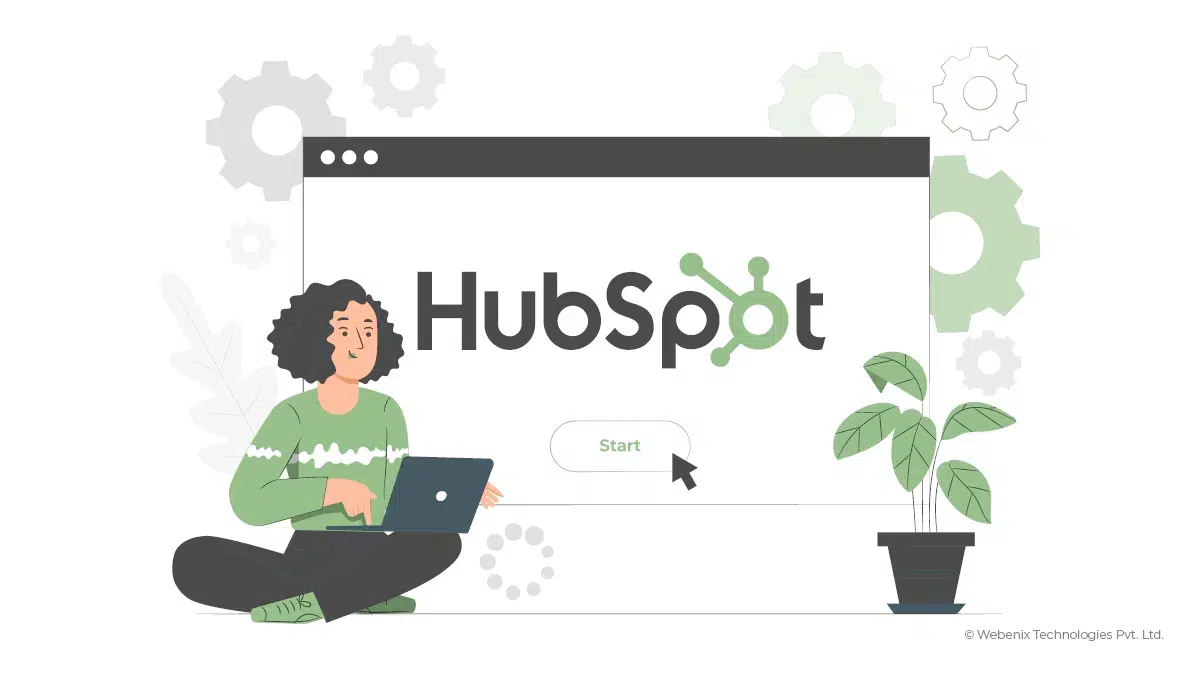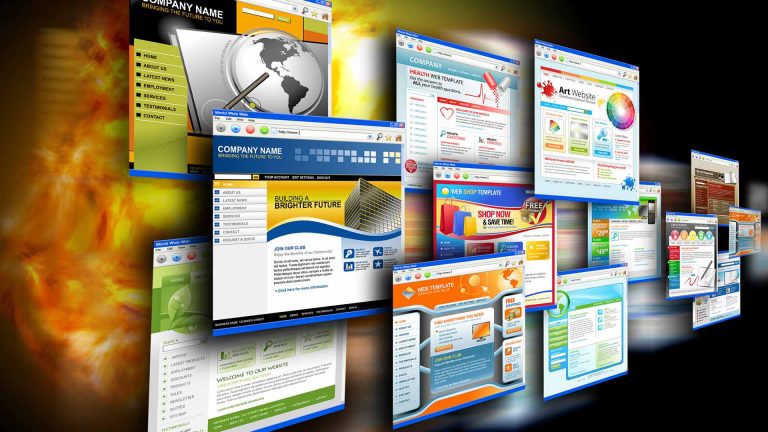IT for Manufacturers: Definition, Benefits, and IT Solutions for Production
The manufacturing industry is known for its need to adapt and be flexible in its processes. In today’s rapidly advancing technological landscape, this need for flexibility is even more pronounced. Technological advancements are affecting every aspect of the industry, from the introduction of new inventions to increased competition, evolving regulatory requirements, and shorter product life cycles. In this article, we will explore the concept of IT for manufacturers in-depth, examining its definition, the multitude of benefits it offers, and delve into 10 key IT solutions that can revolutionize production processes. By embracing information technology, manufacturers can pave the way for a more efficient, productive, and agile future in the dynamic manufacturing landscape.
1. What is information technology in the manufacturing sector?
Information technology (IT) plays a crucial role in the manufacturing sector, revolutionizing the way businesses operate and enabling them to stay competitive in today’s digital age. In the manufacturing context, IT refers to the use of computers, software, networking, and other digital technologies to streamline processes, improve efficiency, and enhance overall operations.
At its core, IT in the manufacturing sector involves the integration of technology solutions into various aspects of the production and supply chain processes. It encompasses a wide range of applications, including enterprise resource planning (ERP) systems, manufacturing execution systems (MES), supply chain management software, data analytics tools, and automation technologies.

The primary purpose of IT in manufacturing is to collect, process, and analyze data throughout the production lifecycle, enabling better decision-making and driving continuous improvement. By leveraging IT solutions, manufacturers can achieve the following:
1.1 Process Optimization:
IT systems enable manufacturers to optimize production processes by automating tasks, capturing real-time data, and monitoring key performance indicators (KPIs). This allows for more efficient resource allocation, improved quality control, and reduced downtime.
1.2 Supply Chain Management:
IT facilitates seamless integration and communication among suppliers, manufacturers, distributors, and customers. It enables real-time visibility into the supply chain, enhances inventory management, streamlines logistics, and facilitates collaboration, resulting in faster order fulfillment and improved customer satisfaction.
1.3 Data-Driven Decision Making:
IT systems provide manufacturers with access to vast amounts of data, allowing them to analyze trends, identify patterns, and gain valuable insights into their operations. This data-driven approach empowers decision-makers to make informed choices, optimize processes, and identify areas for improvement.
1.4 Product Innovation:
IT enables manufacturers to accelerate the product development cycle by facilitating collaborative design, virtual prototyping, and simulation. With computer-aided design (CAD) and product lifecycle management (PLM) tools, manufacturers can improve design accuracy, reduce time to market, and foster innovation.
1.5 Maintenance and Predictive Analytics:
IT solutions enable predictive maintenance by monitoring equipment performance, detecting anomalies, and predicting potential failures. This proactive approach minimizes unplanned downtime, extends the lifespan of assets, and reduces maintenance costs.
1.6 Regulatory Compliance:
IT systems assist manufacturers in meeting regulatory requirements and industry standards. By maintaining accurate records, tracking compliance metrics, and automating reporting, manufacturers can ensure adherence to safety, quality, and environmental regulations.
In summary, IT in the manufacturing sector encompasses a wide range of technologies and solutions that drive process optimization, supply chain management, data-driven decision-making, product innovation, maintenance, and regulatory compliance. By embracing IT in their operations, manufacturers can gain a competitive edge, improve efficiency, and adapt to the evolving demands of the digital era.
2. The benefits of information technology in manufacturing
Information technology (IT) has revolutionized the manufacturing industry, bringing forth a multitude of benefits. By leveraging IT solutions, manufacturers can optimize operations, improve efficiency, and achieve significant growth. Here are some key advantages of information technology in manufacturing:
2.1 Automation and Robotics:

IT enables the integration of automation and robotics systems in manufacturing processes. This helps in streamlining operations, improving accuracy, and increasing production rates. Automated systems can perform repetitive tasks with precision, reducing the chances of errors and freeing up human resources for more complex and creative tasks.
2.2 Data Analysis and Decision Making:
IT allows for the collection, storage, and analysis of vast amounts of data generated during the manufacturing process. This data can be utilized to identify trends, patterns, and bottlenecks, enabling informed decision making. Analytical tools and software can help manufacturers optimize their production processes, minimize waste, and enhance product quality.
2.3 Supply Chain Management:
Information technology facilitates the effective management of the supply chain in manufacturing. With IT systems, manufacturers can track inventory levels, monitor shipments, and coordinate with suppliers and distributors in real-time. This improves inventory management, reduces stockouts, enhances order fulfillment, and minimizes lead times.
2.4 Quality Control and Assurance:

IT systems enable manufacturers to implement robust quality control measures. Automated inspection systems, statistical process control tools, and real-time monitoring help identify defects, deviations, and variations in the manufacturing process. This allows for timely interventions, ensuring that products meet quality standards and reducing the likelihood of product recalls or customer dissatisfaction.
2.5 Enhanced Communication and Collaboration:
Information technology provides manufacturers with various tools and platforms for efficient communication and collaboration among different stakeholders, including employees, suppliers, and customers. Emails, instant messaging, video conferencing, and project management software enable seamless information exchange, fostering teamwork and accelerating decision making.
2.6 Product Lifecycle Management:
IT systems support the management of product lifecycles, from design and development to production and maintenance. Computer-aided design (CAD) software, product data management (PDM) systems, and computer-aided manufacturing (CAM) tools facilitate efficient product design, prototyping, and production planning. This streamlines the entire manufacturing process, reducing time-to-market and improving product quality.
2.7 Remote Monitoring and Maintenance:
Information technology enables remote monitoring and maintenance of manufacturing equipment and systems. Sensors, Internet of Things (IoT) devices, and predictive analytics allow for real-time monitoring of machinery performance, detecting potential issues or failures. This enables proactive maintenance, minimizing downtime and optimizing equipment utilization.
2.8 Cost Reduction and Efficiency:

By leveraging IT solutions, manufacturers can achieve cost reductions and operational efficiency improvements. Automation reduces labor costs, eliminates human errors, and enhances throughput. Inventory management systems help minimize carrying costs and stockouts. Data analysis facilitates waste reduction and process optimization. These factors contribute to improved profitability and competitiveness.
Overall, information technology empowers manufacturers with tools and capabilities to streamline operations, optimize processes, enhance quality control, and drive innovation. By leveraging IT solutions effectively, manufacturers can gain a competitive edge in the industry and adapt to the ever-changing market demands.
Manufacturing companies must stay up-to-date with technology to remain competitive in today’s rapidly evolving landscape. Advancements in manufacturing automation, IT, and data management are transforming the industry, prompting traditional manufacturers to adopt cutting-edge tools. Here are 10 technology solutions that can enhance efficiency in your manufacturing business:
3.1 Application Development and Maintenance:
Implementing applications that facilitate interactions with customers, streamline business transactions, and gather valuable feedback can lead to improved manufacturing processes and better products.
3.2 IT Strategy and Consulting:
Developing a robust IT strategy aligns your business goals with your IT environment, providing a competitive edge in decision-making processes. IT and data management should be integrated across all departments to create viable data systems and innovative solutions.
3.3 Cloud Migration, Computing, and Software as a Service (SaaS):
Migrating to the cloud offers secure data storage and enables small- to medium-sized manufacturers to access cloud-based services for ERP, CRM, distribution, customer service, and finance operations. Cloud computing and SaaS solutions provide controlled data access, cost reduction, quick data retrieval, and increased productivity.
3.4 Data Analysis:
Leveraging technology for data analysis enables companies to analyze data quickly and accurately, facilitating forecasting, planning, and goal setting. Effective data analysis empowers businesses to stay ahead of the competition.
3.5 IT Managed Services:
Partnering with an IT Managed Services provider allows manufacturing companies to focus on their core business while ensuring expert ongoing monitoring, data protection, and advice on hardware and software upgrades.
3.6 Data Backup & Recovery:
Data is a valuable asset, and technology enables secure and rapid data recovery in case of loss. Cloud storage provides a secure backup location, ensuring information can be quickly restored.
3.7 Modern VoIP Phone System:
Implementing a Voice over Internet Protocol (VoIP) phone system enables reliable and cost-effective communication, streamlining operations and connecting multiple locations.
3.8 Disaster Preparedness:
Technology solutions, including data security and disaster recovery plans, allow businesses to predict and recover from disasters effectively. Protecting IT assets safeguards the entire business and minimizes downtime.
3.9 Compliance Standards:
Leveraging technology simplifies compliance with industry standards and regulations, even for large organizations with multiple sites, while staying within budget.
3.10 Automate Operations with Reliable Connected Networks:
Automation becomes easier with advancements in technology. Connecting systems such as inventory, purchasing, accounts receivable, accounts payable, sales, and marketing creates an efficient manufacturing system, reducing costs and improving productivity.
By adopting these technology solutions, manufacturing companies can enhance efficiency, streamline operations, improve data management, and gain a competitive advantage in the industry.
3. Conclusion
In the midst of the rapidly evolving manufacturing landscape, embracing information technology solutions is crucial for companies to thrive. Onext Digital, as a Leading Provider Of IT Solutions for manufacturers, offers a range of cutting-edge technologies and services that can revolutionize the way businesses operate.
In summary, Onext Digital’s IT solutions offer manufacturers the opportunity to embrace digital transformation, adapt to market dynamics, and seize new growth opportunities. By leveraging Onext Digital’s expertise, manufacturers can future-proof their operations, improve productivity, and gain a competitive edge in the ever-evolving manufacturing sector. Choose Onext Digital as your IT partner and unlock the full potential of information technology in manufacturing.




